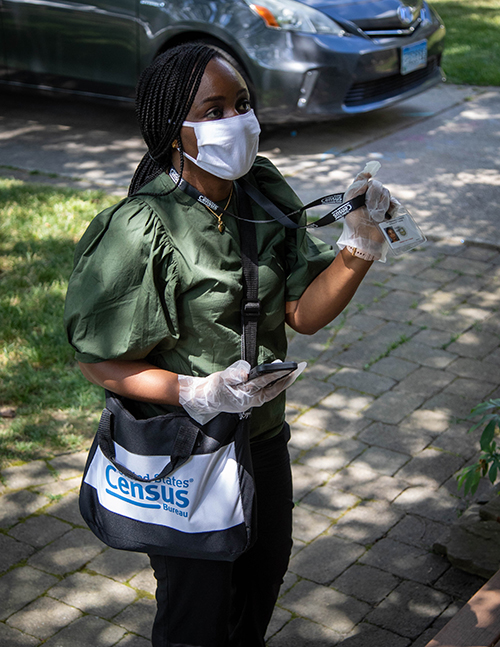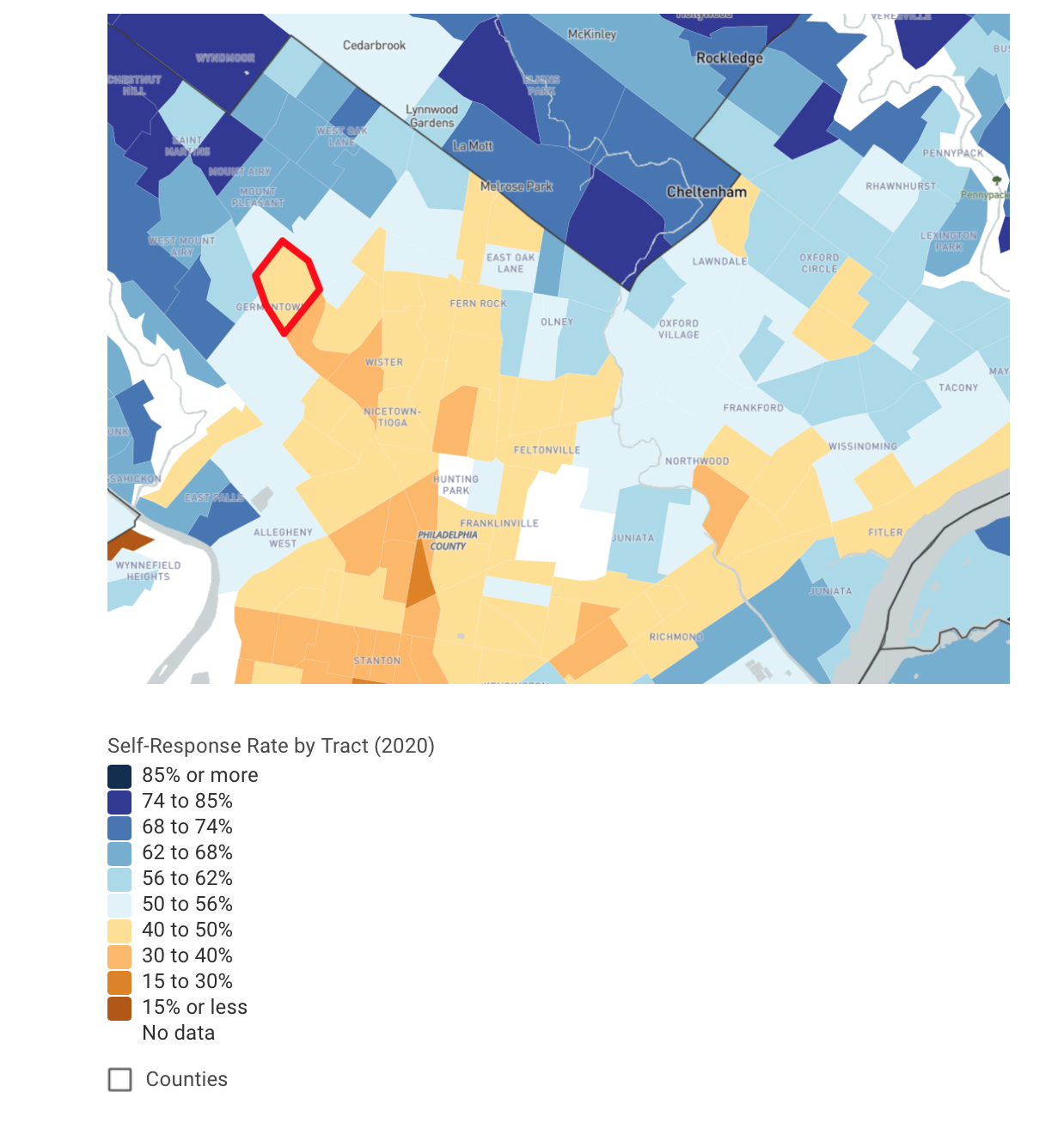
The 2020 census will soon come to an end. Philadelphians have until September 30 to complete a census form online, by phone, or by mail.
The national population count takes place every ten years and the information gathered determines the amount of federal funding and congressional representation each state will receive. For example, the state will receive about $21,000 per Pennsylvanian over the decade.
The federal government funds more than 50 programs based on census data including Medicare, public housing, and school lunches. And while PA currently has 18 House of Representative seats, it has the potential to lose or gain seats depending on changes in the population.
Germantown resident and Philly Counts 2020 Director of Partnerships Pedro Rodriguez is helping advocate for the census. Mayor Kennedy began the Philly Counts office to ensure Philadelphia’s population count is an accurate representation of the city. Rodriguez said a majority of his work is encouraging those new to the city and those who have never been counted to take part.
Rodriguez said those who have never been counted are challenging to reach. He said groups considered ‘hard-to-count’ include people experiencing poverty and homelessness. Neighborhoods with low civic engagement also have low census participation according to Rodriguez.
“So it is always a number of people [that are not] counted. Those communities get short changed. Not just only in the political representation, not only in resources coming to their communities, but also they don’t show up on the data. They don’t exist.”
According to the Bureau, Germantown’s self-response rate is below 50 percent. Commenting on the low response rate in their August newsletter, Germantown United CDC wrote, “When our people are missing from the census, resources and political power for Germantown get assigned to somewhere else — somewhere that already has more money, more privilege, and more power.”

Rodriguez said experts expected a population increase in Philadelphia, but the COVID-19 pandemic has affected the census response rate. Both census takers and advocates faced outreach challenges because of social distancing.
Two weeks ago the Bureau announced it will end all counting by Sept. 30. That’s 30 days earlier than the previous deadline. The pandemic has left advocacy organizations relying on virtual outreach and distributing door-to-door information.
If you want to learn more about the Census you can visit 2020census.gov.



